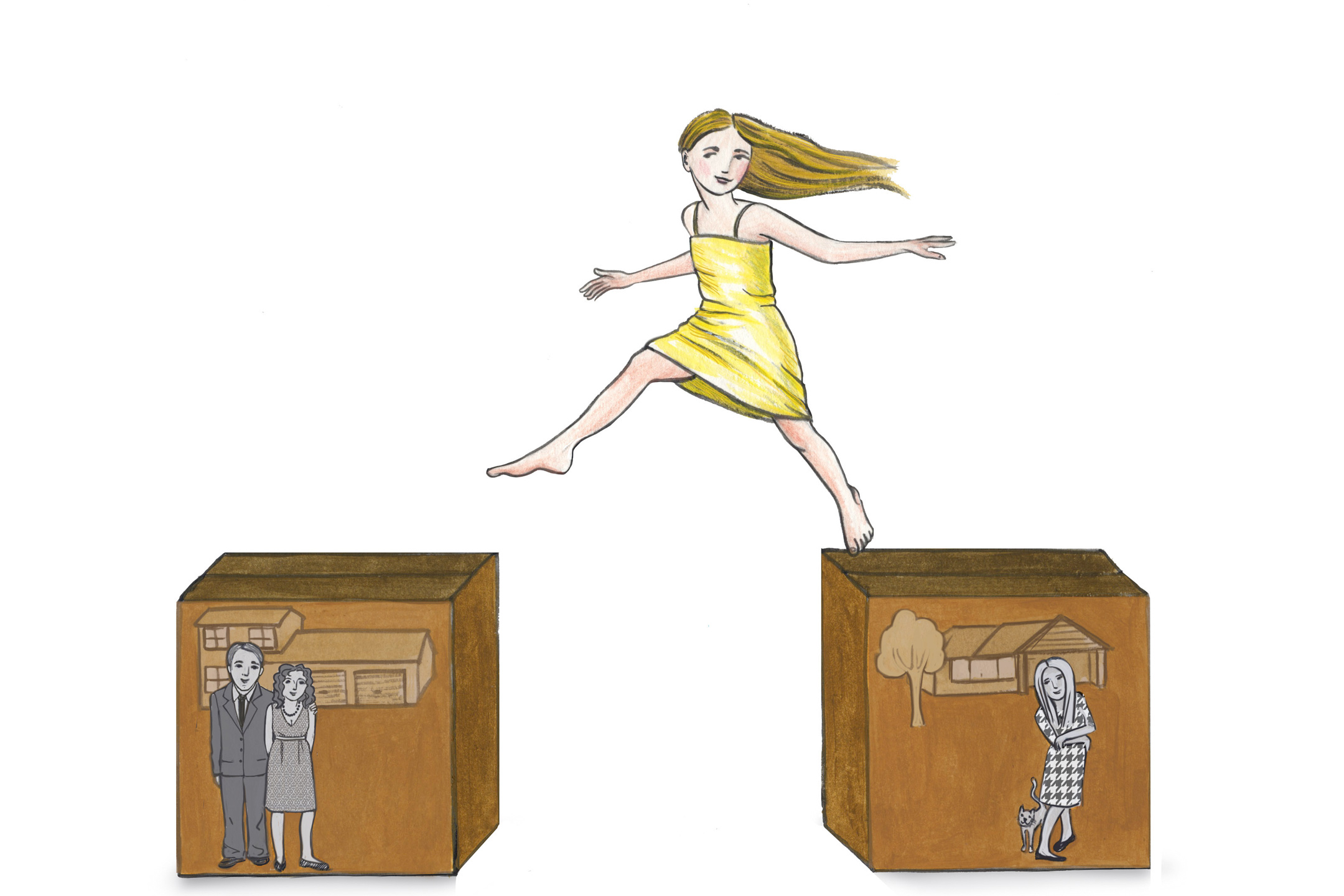
25 Jan Stepping Over The Divide
There is one part of her stepdaughter’s life about which Anne Walker knows very little.
I have a stepdaughter who lives two lives. One life I know all about – I like to think so, anyway. Her second life, I know nothing about. My stepdaughter goes to the “other house” on alternate weekends. She goes to live with her mother. It is as though she disappears into a void. She returns to us with hardly a word, as though she’s just been downstairs or outside playing for five minutes. There are no comments or views about where she was. No information about where she’s been or what she’s done. Certainly no disclosure of what she has thought or felt while she’s been away.
I think of these weekends as her Silent Weekends.
Even though I know what her answer will be, I ask her, “How was your weekend at Mum’s?” “Good, thanks”, she says. End of sentence, end of conversation.
Sometimes, though, I push to see if she will let down her guard and give me a bit of herself: “So, what did you get up to?” As usual, she is very polite. She tells me where they went. Only the facts, no detail, just broad, sweeping statements.
She and I have a good relationship. We talk, we hang out, we spend a lot of time together. But her Silent Weekends are a place where I am never welcomed.
I wonder where she has learned to impose this great divide between the ‘houses’. Maybe it is from our language. We usually talk about her going to the suburb where her mother lives as if her mum’s house fills the whole suburb. Or we talk about the “other house”. Maybe if we simply named her mum’s house ‘your mum’s house’, she would feel comfortable talking about her life there.
I wonder if this is a safety issue for her. How many times, in the early days in particular, did we voice quiet criticisms or judgements? Even if we didn’t put words to them, she knew they were there – like the times when they bought things that we thought were wasteful and didn’t tally with our values. Or when she was allowed to start shaving her legs at 11 years of age – ‘Way too young’, we thought. Parents don’t have to say very much for their disapproval to be palpable.
In some families, criticism of the other parent can be open and harsh. That is obviously not in anyone’s interests. However, there are also small things about which a parent might make a minor conversational comment. If it weren’t about the child’s other parent, the child would not even notice. Children are very sensitive when it comes to their parents, especially in ‘step’ situations. Then, anything said about the other parent can become a worry for the child.
What is usually certain is that the child loves both their parents, and they don’t want to be torn between them. As a result, in a stepfamily, most children shut down any line of possible criticism by not opening up the subject at all. I realise now that even a whiff of criticism about the other parent’s actions can limit the communication of the child.
In the early days, I didn’t ask about her weekends away. I thought I was giving her space to tell me what she wanted to tell me. Maybe she interpreted that as a lack of interest on my part. I have certainly learned that stepfamilies can be minefields of misinterpretation.
I once asked her, “Why don’t you tell us much about what you get up to at Mum’s?” She looked surprised and said, “That’s just the way it has always been – separate”.
Illustration by Rosalie Street


